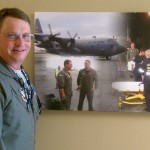It has been five years since an oil well in the Gulf of Mexico failed, spewing millions of barrels of oil into the Gulf and causing one of the worst environmental disasters in U.S. history. The emergency and disaster response had to be both immediate and sustained as the uncapped oil well, owned by BP, released an estimated 4.2 million barrels of oil for 87 straight days.

He provides insight about the lessons learned from this disaster and how it has impacted future preparedness plans. This disaster proved how critical a “community of effort” response is to such disasters, requiring collaboration from federal, state, and local resources. He also discusses the ongoing importance of establishing relationships among all response levels.
Learn more about the response to this disaster and the lessons learned:
Comments are closed.